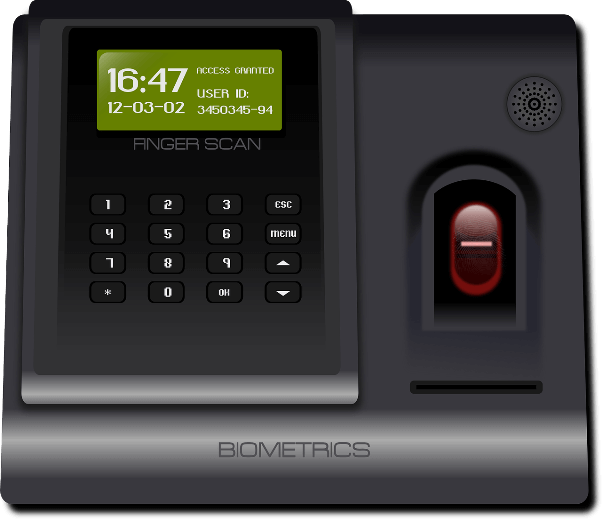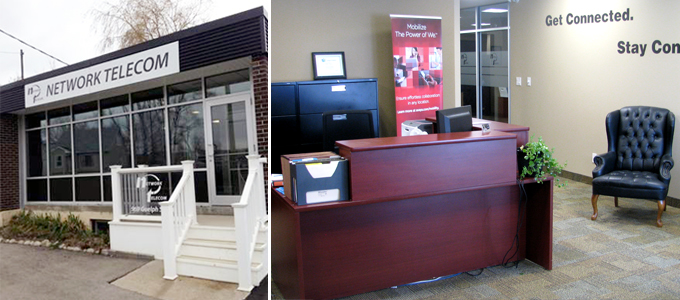
Like most industries today, telecommunications is rapidly transforming. Read on to discover the top 4 telecommunications trends and how they will impact the way you do business. Network Telecom has been in the telecommunications market since 1979 and we have constantly been keeping pace with the rapid changes in telecommunications. We are experts in our field and we can help your business excel through all of these changes. Contact us today and find out how we can help.
Trend #1: Network Upgrades
5G is a significantly faster network that will greatly improve Internet speeds
Need for Speed:
Since the Internet began, faster speeds have always been a priority as newer and more demanding technologies require faster speeds and wider bandwidths. The telecommunications industry is also working towards faster Internet speeds to support its need for high-quality services such as VoIP and video conferencing.
Working Towards 5G Networks:
Telecom carriers are working hard to provide the market with faster Internet with 5G networks. A complete, mass-market 5G coverage is scheduled to be in effect by about 2020. 5G is the fifth generation in cellular wireless. The “G” in 5G stands for generation. The series of generations began with 1G (analog cellular technology), 2G (the first digital cellular technologies), 3G (characterized by faster speeds from 200kbps) and 4G (which includes technologies such as WiMAX and LTE).
5G networks are able to:
- deliver fibre-level speed to move more data
- provide low latency to be more responsive
- function without any negative effects from environmental factors like rain and snow
- connect more devices at the same time
Canadian telecom providers have been testing 5G networks but have yet to announce when it will be delivered to customers. Bell has a project called “wireless to the home” that was launched in two Ontario towns that will be upgradable to 5G in the future and expanded to 20 other locations in Ontario and Quebec. Currently, Rogers is using the Rogers Centre as a 5G test laboratory to find out how it will work in a challenging environment with thousands of wireless signals all at once.
Trend #2: Greater Security

Many industries including telecommunications are using biometric readers to increase security measures.
Biometric Fingerprint Readers:
The wide variety of services and new telecom devices operating over the Internet today combined with the increasing number of new attacks and threats by hackers has initiated the need for increased security. Many smartphones are now equipped with biometric fingerprint readers; by the end of 2017, there were about 1 billion such phones in use. This same technology is also being used in other sectors such as retail, finance, government, and education to accurately verify identities.
Other Biometric Mechanisms:
In the coming years, other types of biometric devices such as facial and retinal scanners will also become more popular to further enhance security. Many telecom companies have already developed and implemented biometric SIM cards to help stop crimes associated with mobile devices and terrorist attacks.
According to the Office of the Privacy Commissioner of Canada, Canada does not have a policy on the use of biometrics by the government or the private sector. However, because biometric systems involve the collection of personal information, using them would fall under the provisions of the Privacy Act.
Trend #3: More Telecom and Other Devices Will Become Part of the “Internet of Things”
The Internet of Things connects billions of devices around the world to each other
Internet of Things:
The “Internet of things” or IoT, is the concept of connecting anything that has a power source to the Internet. This could include items such as your cellphones, lamps, appliances, headphones, and coffee makers. It is estimated that by 2020 there will be over 26 billion connected devices on the Internet.
Telecom Companies Invest More in IoT Technology:
Telecom companies will expand their businesses by becoming IoT connection service providers adding to their telecommunications services. According to a survey done by Tata communications, the telecommunications sector is the fourth top spender on IoT technology. Their spending is expected to reach approximately $169.5 million in 2018.
Trend #4: The Newest Shift in SmartPhone Technology Will Be Artificial Intelligence
Artificial Intelligence will be the next technology for SmartPhones – Learn more about what they can do in this video
According to Huawei, the next wave of smartphones will see the addition of artificial intelligence. Artificial intelligence refers to the ability of a machine to reason or make decisions which are not explicitly defined. This new capability will transform the smartphone into the “intelligent” phone that is able to do some really impressive things such as:
- mimicking your motions and voice with a 3D facial-mapping information in real time
- learn details about objects and locations by simply using their camera app
- open apps or setting your alarm clock through voice commands

You can trust Network Telecom with all your telecommunications needs
Contact Us Now
Toll Free: 1-866-764-7866 || Email: [email protected]
You have been forward thinkers, always keeping us up-to-date with the latest telecommunication equipment.
Network Telecom Can Help You Keep Up to Date with the Latest Telecommunications Trends
If you need to update your current business phone system, partner with Network Telecom. Wed will help you choose a phone system that is perfect for your business. Whether you are looking to have a new phone system installed or your current system updated, you can trust Network Telecom to offer you the expert advice you require. Network Telecom can also help you with video conferencing solutions that will meet your business’ particular needs. In addition, if your phone system is not working as it should, our trained technicians are available to help 24 hours a day, 7 days a week, 365 days a year. We carry a huge selection of parts in order to quickly solve any components issue you are experiencing. If you are having a telecommunication or networking issue, we can resolve it quickly and professionally.
In addition to our accredited and certified technical expertise, we offer:
- Consultative Sales
- Cloud Services
- Ongoing Support
- Voice Mail Systems
- System Design + Consulting
- System Admin + User Training
- PA Systems
- VoIP Specialist
- Network Cabling
Contact us today for all of your telecommunication questions and concerns; we’d be happy to help you.

